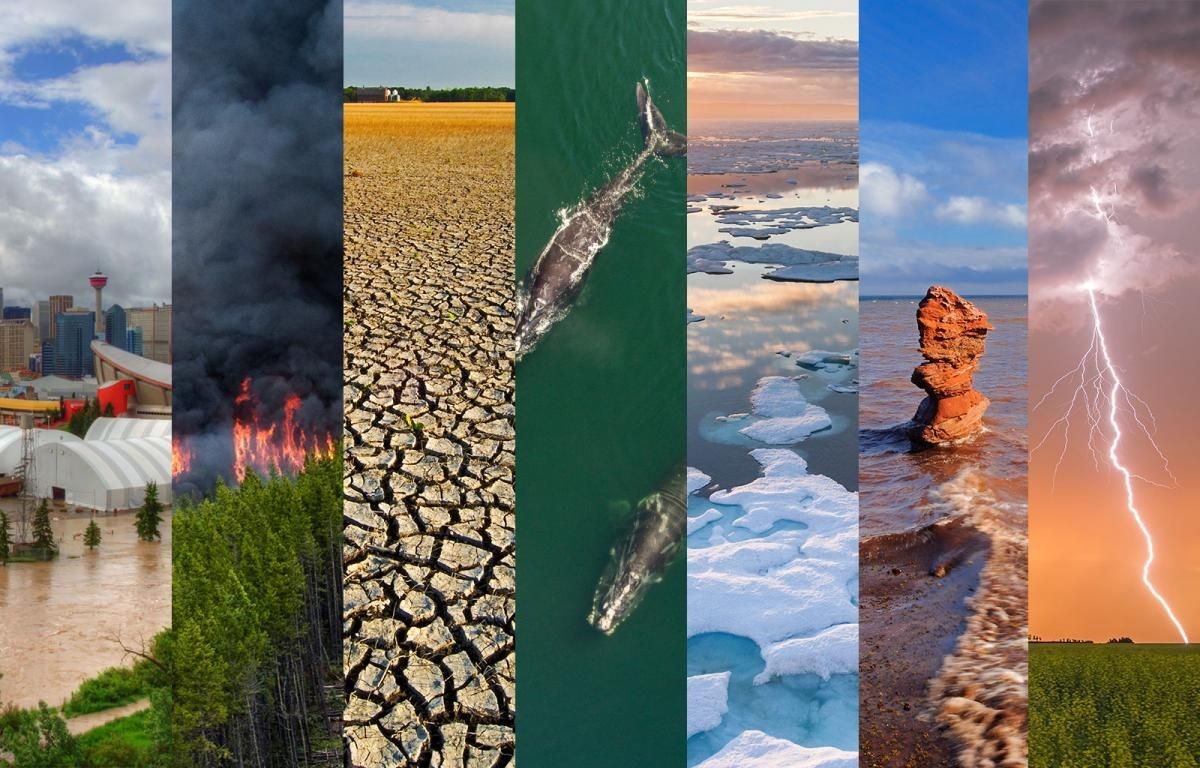
Climate change is no longer a distant threat but a pressing reality that affects various facets of human life. One of the most critical areas impacted by climate change is public health. As global temperatures rise, extreme weather events become more frequent, and ecosystems are disrupted, the implications for human health are profound and far-reaching. This article delves into the ways climate change influences public health, emphasizing the need for immediate action and adaptation strategies.
Rising Temperatures and Heat-Related Illnesses
One of the most direct impacts of climate change on public health is the increase in heat-related illnesses. As global temperatures continue to rise, heatwaves are becoming more frequent and severe. High temperatures can lead to heat exhaustion and heatstroke, conditions that can be fatal if not promptly treated. Vulnerable populations, such as the elderly, children, and those with preexisting health conditions, are particularly at risk.
Moreover, higher temperatures can exacerbate chronic conditions such as cardiovascular and respiratory diseases. Studies have shown a correlation between high temperatures and increased hospital admissions for heart attacks, strokes, and respiratory issues. This highlights the urgent need for public health systems to develop heat action plans and provide resources for vulnerable communities.
Air Quality and Respiratory Problems
Climate change significantly affects air quality, which in turn impacts respiratory health. Rising temperatures and changing weather patterns can increase the concentration of ground-level ozone and particulate matter, both of which are harmful pollutants. Poor air quality is linked to a range of respiratory problems, including asthma, bronchitis, and chronic obstructive pulmonary disease (COPD).
Furthermore, wildfires, which are becoming more frequent and intense due to climate change, release large amounts of smoke and particulate matter into the air. This not only degrades air quality but also poses severe respiratory risks. Public health initiatives must focus on monitoring air quality and providing timely warnings to populations at risk.
Vector-Borne Diseases
Climate change is altering the distribution and behavior of vectors such as mosquitoes and ticks, which are responsible for transmitting diseases like malaria, dengue fever, and Lyme disease. Warmer temperatures and changing precipitation patterns create favorable conditions for these vectors to thrive and expand their geographic range.
For instance, the Aedes mosquito, which transmits dengue fever, is now found in regions previously too cool for its survival. This expansion increases the risk of outbreaks in new areas, posing a significant public health challenge. Effective vector control programs and public awareness campaigns are essential to mitigate the spread of these diseases.

Waterborne Diseases and Food Safety
Climate change also affects water quality and food safety, leading to an increased risk of waterborne diseases and foodborne illnesses. Extreme weather events such as floods can contaminate water supplies with pathogens, leading to outbreaks of diseases like cholera and dysentery. Additionally, warmer water temperatures can promote the growth of harmful algal blooms, which produce toxins that contaminate drinking water and seafood.
Food safety is another concern, as changing climate conditions can affect the production, distribution, and storage of food. Higher temperatures can increase the risk of food spoilage and contamination by pathogens such as Salmonella and E. coli. Public health systems must prioritize water and food safety measures to protect populations from these risks.
Mental Health Impacts
The impact of climate change on public health extends beyond physical health to mental health. The stress and anxiety associated with extreme weather events, displacement, and loss of livelihoods can lead to mental health issues such as depression, anxiety, and post-traumatic stress disorder (PTSD). Communities that experience frequent natural disasters, such as hurricanes and wildfires, are particularly vulnerable.
Moreover, the long-term uncertainty and existential threat posed by climate change can contribute to a phenomenon known as “eco-anxiety.” Public health initiatives should include mental health support and resources to help individuals and communities cope with the psychological impacts of climate change.
Nutrition and Food Security
Climate change poses a significant threat to global food security, which in turn affects public health. Changes in temperature and precipitation patterns can disrupt agricultural production, leading to food shortages and increased prices. This can result in malnutrition, particularly in vulnerable populations such as children and low-income communities.
Moreover, extreme weather events can destroy crops and livestock, further exacerbating food insecurity. Public health strategies must address the nutritional needs of populations affected by climate change and promote sustainable agricultural practices to ensure food security.
Adaptation and Mitigation Strategies
To protect public health from the impacts of climate change, it is essential to implement both adaptation and mitigation strategies. Adaptation involves making adjustments to social, economic, and environmental practices to reduce vulnerability and enhance resilience. Examples include developing early warning systems for extreme weather events, improving infrastructure to withstand climate impacts, and promoting public awareness and education.
Mitigation, on the other hand, focuses on reducing greenhouse gas emissions to slow the pace of climate change. This includes transitioning to renewable energy sources, improving energy efficiency, and promoting sustainable transportation and land-use practices.
Public health systems must integrate climate change considerations into their planning and operations. This includes conducting vulnerability assessments, developing climate-resilient health infrastructure, and ensuring that health professionals are trained to recognize and address climate-related health issues.
Conclusion
The impact of climate change on public health is multifaceted and profound. Rising temperatures, poor air quality, changing patterns of vector-borne diseases, water and food safety concerns, mental health impacts, and threats to food security all underscore the urgent need for action. By implementing comprehensive adaptation and mitigation strategies, we can protect public health and build resilient communities capable of withstanding the challenges posed by a changing climate.
Public health is inextricably linked to the health of our planet. As we confront the realities of climate change, it is imperative that we prioritize the well-being of all populations, particularly the most vulnerable, and work collectively towards a sustainable and healthy future.










